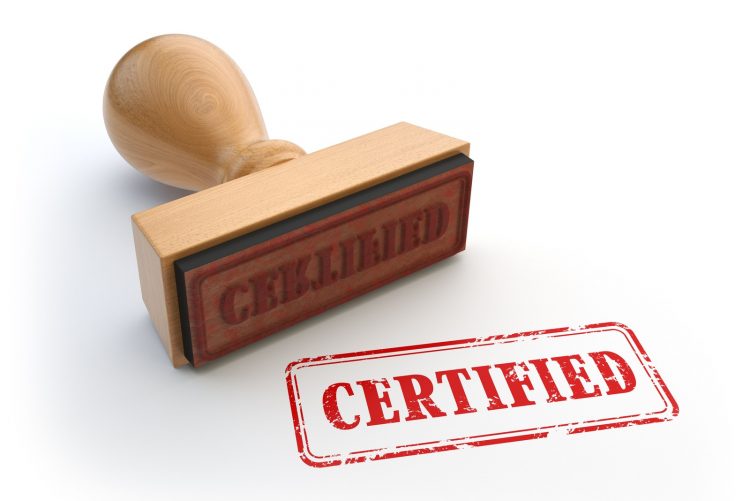Savvy manufacturers understand the importance of choosing the best suppliers. They know that it helps ensure a robust supply chain. In fact, finding reliable vendors of quality materials and tools can be the difference between working efficiently and experiencing production delays or putting up with constant reworks.
However, finding suppliers that can meet the requirements you’ve set for your preferred suppliers list (PSL) has never been a straightforward process. Outside forces, such as trade wars and component shortages, can affect your ability to secure and work with the best ones out there.
So, the big question is, how to choose the right supplier for your manufacturing business’ needs? Here’s a list of things you should look for in your prospective candidates so you can separate the best from the rest:
1. Certifications

The first thing to look for in potential suppliers is quality certifications. So, aim to discover vendors that are certified to meet your quality standards.
One of the most popular certifications is those issued by the International Organization for Standardization (ISO). Companies certified by the ISO have work systems that are proven reliable.
If a company isn’t ISO-certified, it’s either they’re not up to the standards the certification requires or they haven’t applied for one. Regardless of the reason, it’s still best to choose a standards-compliant supplier to be part of your PSL.
2. Good Financial Health
Financial stability is also an essential consideration. That’s because a sufficiently good cash flow helps ensure that the vendor can deliver your orders anytime you need them. Cash-positive firms are also in a much better position to survive an uncertain economy’s ups and downs.
You don’t want to work with suppliers that constantly miss delivery times or will suddenly go out of business due to financial instability. Of course, delays in supply could impact your business negatively. Not only it will disrupt your operations but it’ll also frustrate your customers.
Say, for example, you need toggle clamps for your machining processes. The supplier should be able to supply the tools with the specific configuration, size, or capacity you want. The item should also be delivered to you within your set timeframe. If you’re unsure what clamp works best for your mechanical tasks, click here to check your different options.
Here are two ways to assess the financial state of prospective suppliers:
- A simple credit check is one way to assess your potential vendor’s capacity to meet your demands. The good news is that you can always request their credit history from trusted credit bureaus.
- Another way to check whether or not your prospective vendor is financially stable is to research important details about the company. When was the business established? How many staff are currently employed in the company? Who do they supply materials and tools to at present?
These are some of the many questions you can try to answer when doing your research. They’ll give you an idea of the quantities of materials and tools the vendor is used to supplying.
Assessing your prospects’ capacity to meet your demands can go a long way in giving you peace of mind. It’ll assure you that the vendor will be there when you need them most.
3. Availability Of Service Level Agreements (SLA)

Another important thing to consider is the availability of service level agreements (SLA). SLAs are a critical component of any supplier contract as they define the service you can expect from the vendor. They also lay out the metrics to be used for measuring the service provided.
SLAs are also beneficial to you in the sense that they set out remedies or penalties for the vendor’s failure to achieve expected service levels. This means that there will be compensation guidelines if the supplier fails to meet what’s stipulated in the agreement. Normally, compensations come in the form of service charge rebates.
Service level agreements from your prospective vendors should include the following components:
- Specifics of service provided
- Conditions of service availability
- The time window for each service level
- Each party’s responsibilities
- Escalation procedures
SLAs protect both you and your supplier. Any contract that lacks an associated service level agreement is open to misinterpretations. Therefore, it’s best to work with a vendor that provides an SLA.
4. Clear Troubleshooting Processes
As mentioned, the escalation procedures are one of the essential components of service level agreements. As you probably already know, the escalation process clarifies the decision-making boundaries and channels throughout an organization. It aims to solve any problem quickly and with clarity.
There should be troubleshooting procedures in place because vendors may also make mistakes. For instance, they may fail to deliver your orders on the set delivery date. Damaged supplies can also be a problem. Shipping mistakes may even occur sometimes. That’s why it has to be clear from the outset how they’ll identify and fix issues before and after they’ve occurred.
It’s also in the troubleshooting process where the mutual binding agreement (SLAs) about the compensation for faulty goods as well as the return and refund policies can be of great help.
Choosing a supplier that follows an unclear troubleshooting process can cause a significant burden for your manufacturing business. It’s especially true if your daily operations heavily rely on your suppliers.
5. Fair Pricing

Indeed, manufacturers shouldn’t base their selection process for suppliers wholly on cost. Nevertheless, it’s essential to know how the pricing of a specific vendor compares with others. Knowing how your prospects position themselves in terms of pricing provides insights into their service or product’s overall quality.
Cheaper vendors look immediately more attractive for sure. However, the most important thing to keep in mind here is to avoid choosing a lower price for the sake of it. Always try to lower the costs but without sacrificing product or service quality.
Conclusion
Finding the right suppliers can make or break your manufacturing business. Thus, it’s important that you consider their value, services, and reliability. Be thorough in your research, communicate, and, if possible, visit their premises in order to ensure that they’re the right fit for making your manufacturing business successful.
 Hi Boox Popular Magazine 2024
Hi Boox Popular Magazine 2024



